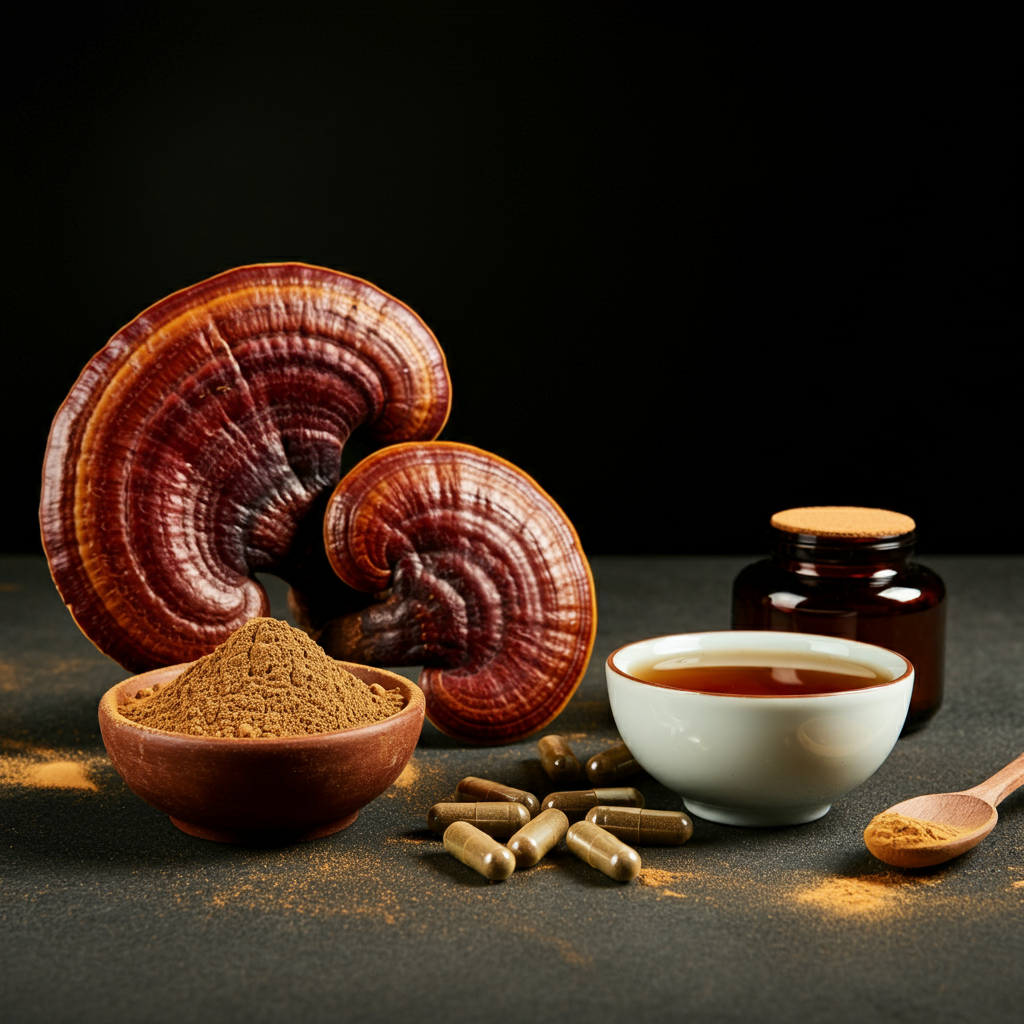Turkey Tail
(Trametes versicolor)
Turkey tail is a common mushroom known for its vibrant, multicolored appearance. It is scientifically known as Trametes versicolor in Western literature, despite the name Coriolus versicolor being utilized in Asian literature. While there appears to be disagreement regarding the taxonomy of this species, the literature consistently refers to the same species.
It is one of the most studied medicinal mushrooms, and compounds derived from it are commonly prescribed for certain treatments in Asia. It has been shown to have beneficial effects on immune function, particularly in the context of cancer treatment.
How does it work?
The main benefits of Turkey Tail are attributed to specific compounds called beta-glucans, which occur within the cell walls of the mushroom. Beta-glucans have been extensively studied for their ability to help stimulate and improve immune function. They do this by stimulating various immune cells, including macrophages, natural killer (NK) cells, cytokines, and T cells, which help the body fight off infections and abnormal cells. They have also been shown to inhibit the growth of tumors. Lastly, they have also been shown to have prebiotic properties which may improve gut-health.
What are beta-glucans?
Beta-glucans are polysaccharides that occur within the cell walls of fungi. While all sorts of fungi make beta-glucans, from yeasts to button mushrooms, each species makes unique beta-glucans with distinct properties. The beta-glucans in Turkey Tail have been shown to be particularly bioactive. Two types of beta-glucans derived from Turkey Tail have been extensively studied: PSK and PSP.
While these beta-glucans are produced within the mushroom fruiting body, clinical research typically uses beta-glucans derived from laboratory-grown mycelium. This laboratory-grown mycelium is grown in a liquid medium and allows for a precise extraction of the desired compounds.
Turkey Tail Clinical Trials
Numerous clinical trials have investigated the effects of the turkey tail, primarily focusing on its potential as an adjuvant cancer therapy. These trials, ranging from small-scale studies to larger, randomized controlled trials, have explored its impact on various cancers, such as gastric, colorectal, breast, and lung cancer. While the findings of these studies have been mixed, many have shown improved survival rates and quality of life. Below is a list of many, but not all, clinical trials conducted on Turkey Tail and compounds derived from it.
